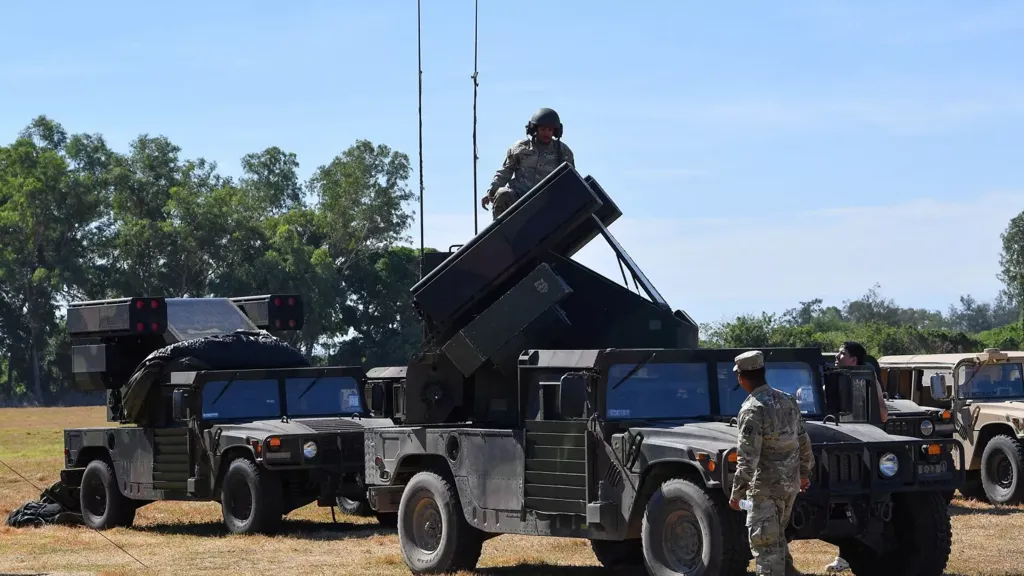The Philippines has been working to strengthen its military ties with other regional players concerned about China's expansive activities in the South China Sea.
"It would be hiding from the obvious to say that Taiwan's security will not affect us," Philippine defense chief Gilberto Teodoro told The Washington Post in a recent interview.
Recently, the United States' treaty ally has also found common cause with Taiwan, which faces the threat of a possible Chinese invasion. The prospect of such a conflict has left many governments in the Asia-Pacific on edge.
Beijing's Chinese Communist Party government claims Taiwan as its territory, though it has never ruled the island, and China's rapid military buildup and coercive actions in the Taiwan Strait have led its neighbor to boost defense spending and order a series of high-profile weapons systems from the U.S., its main arms supplier.
The Philippines has also been bolstering its defenses in response to the risk of a regional conflagration and China's expansionist moves within the country's exclusive economic zone.
China claims sovereignty over most of the busy South China Sea -- claims that overlap with those of the Philippines and several other nations. Philippine pushback under President Ferdinand Marcos Jr. has been met with Chinese blockades, ramming, and water cannons that last year left several Filipino service members injured.
Speaking on condition of anonymity, government officials and advisers from both Taiwan and the Philippines told the newspaper that Philippine academics with close defense ties took part in closed-door forums with top Taiwanese generals to familiarize themselves with Taiwanese security perspectives.
Taipei and Manila also dispatched their coast guards on joint patrols in the Bashi Channel between the two sides, a waterway viewed by the U.S. as a strategic chokepoint in any conflict with China.
Last month, Philippine navy spokesperson Roy Vincent Trinidad and coast guard official Jay Tarrieala traveled to Taiwan to join experts from 15 governments at a summit that included discussions on countering Chinese hybrid warfare strategies.
It was the first high-level Philippine delegation since the Marcos administration lifted a ban on such trips in April.
In another sign of growing defense engagement, representatives from Taiwan's navy and marine corps observed U.S., Philippine, and Japanese troops training with a U.S. NMESIS ship-killing missile launcher in the Batanes Islands -- a Philippine province closer to southern Taiwan than to Manila.
Philippine-U.S. security ties continue to deepen after Washington gained access to four new military sites in the country in 2023, bringing the total to nine. Manila has not confirmed whether these would be available for use in a U.S. defense of Taiwan.
China's embassy in Washington, D.C. referred Newsweek to a statement by its embassy in Manila: "We urge the Philippine side to abide by the one-China principle, stop any form of official interaction with the Taiwan authorities, and stop sending wrong signals to 'Taiwan independence' separatist forces," an embassy spokesperson said, adding: "those who play with fire will perish by it."
The U.S. and the Philippines share a mutual defense treaty, and Taiwan is home to over 160,000 Filipino migrant workers who would need to be evacuated if an invasion occurred.
Philippine officials have said they must prepare for the possibility of such an eventuality. "Because, if something happens to Taiwan, inevitably we will be involved," Philippines armed forces chief Gen. Romeo Brawner said in April.
Against this backdrop of regional tensions, the Philippines has launched a decade-long, $35 billion military modernization program that will include the purchase of more capable fighter jets and warships.
